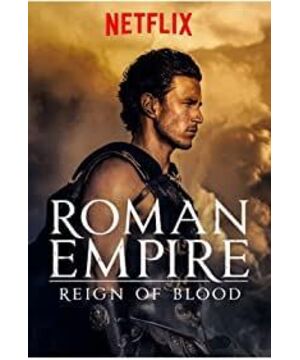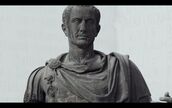What kind of image is Commodus, I think people who watch this season will feel that he is not the two brushes of the emperor, he is greedy, weak and suspicious, and whimsical. As I watched it, I wondered, how could he really be so unbearable, how could he understand the emperor's technique of checks and balances, and the truth that those who win the hearts and minds of the people win the world. Then the sixth episode revealed that the only narrator of this history is the old man who survived multiple power struggles: Dio.
What kind of image is Dio? It means a little bit of a father. He is obviously the mastermind who ended Commodus's life in the last episode, but in the previous characterizations, he has an inexplicable pity for Commodus and a strong sense of the Roman Empire. A sense of responsibility, but also a deeply ingrained aristocratic elite, who had a strong dissatisfaction with Commodus's approach to challenging traditional class status.
Let's take a look at Commodus's political actions. After he came to power, he ended the war with Germania. This was undoubtedly Meiji at that time, and it was correct. Held a one-day large-scale competition, won the favor of the public, and beat the rival Senate at the same time. Let the cronies Clinde hold the power, and Clinde secretly placed a lot of his own people on the seats of the Senate. Aside from Clinde's dissent, this is indeed an enemy (the Senate opposes Commodus). sent), Commodus put such a character to fight with the elders, isn’t this just the art of checks and balances? At a time when the plague is such a catastrophe, the cornerstone of governance is shaking. Commodus chose the most Roman-style way to reunite people and win respect. Is he really a fool?
The film does not explain why a born noble character like Commodus likes to mingle with slaves, and even gives them high positions and power, so disregarding the traditional class behavior, isn't it bold? Isn't it unusual?
In my opinion, his biggest mistake was blatantly fighting with the Senate, which ended in death. Yes, I really think he didn't kill himself. die?
It is a bold guess that Commodus's purpose from beginning to end is to weaken the power of the Senate and become the real Roman emperor. During the period when Clinde was in power, he was not really greedy for beauty and ignoring political affairs, but the master behind it, that is, Saying that there was no betrayal by Klinde, he was also killed by the fight. Moreover, one of the emperor's two cronies died at the hands of the other, and the other died at the hands of the emperor, really? Are you sure that Dio didn't put his life on others?
The key is the character of Klinde, who said that he was jealous of another cronie at first, and he joined the elders to kill the cronies and murder the emperor, but he could not guarantee that the emperor would definitely escape the attack. This is Doubt 1, Doubt 2: After Clinde got the status he dreamed of, he began to delusionally want to be the emperor, isn't he afraid of getting involved? He had just witnessed the elder's assassination of the emperor, and besides, he was originally a slave. Is it feasible to be an emperor? Doubt 3 said that Klinde kept food. This episode actually sentenced Klinde to death in just a few words. As for the food that was saved, there must be physical evidence. Was he really killed by the emperor in a fit of rage?
View more about Roman Empire reviews











